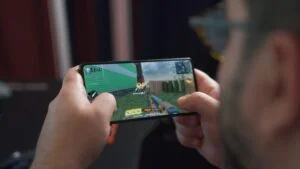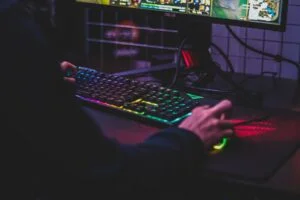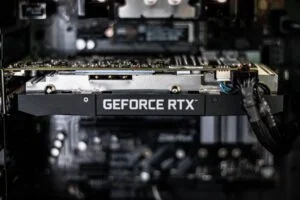Do you have a game idea? Maybe it’s a new character, a unique world, or a revolutionary gameplay mechanic. You want to protect your intellectual property (IP) from theft. But how do you do that?
The IP game is where it comes in. The IP game focuses on creating and implementing a strategy to safeguard and profit from your intellectual property. Understanding the complex and ever-changing nature of the game is essential for every game developer.
IP Game
The IP game can be challenging, but it offers rewards. A strong IP strategy can protect your creations and help you build a position in the gaming industry.
Here’s a friendly tip: don’t wait until you have a finished game to start thinking about IP. The earlier you start planning, the better. Start by brainstorming a list of all the IPs that you’ll need for your game. Then, do some research to learn about the different ways to protect and monetize your IP.
With careful planning and dedication, one can become skilled in the field of IP game development and create a successful career.
What does IP Stand for in Gaming?
IP stands for Intellectual Property in gaming. It refers to all the creative elements of a video game, such as characters, storylines, artwork, music, and other unique assets that are used to create a game.
IP is important because it protects the creator from having their ideas stolen or copied by someone else.
Without IP protection, anyone could take your hard work and claim it as their own. By registering your IP with relevant authorities, you can ensure that your work is protected and that any profits generated from it will remain yours.
What are the types of IP Protection?
Copyright Protection
It’s the most common form of IP rights protection and it covers all the exclusive rights that are created for your game. This includes everything from artwork, music, scripts, characters, and even code.
By registering with the copyright office, you can become the copyright owner and protect your work from being stolen or copied without authorization. Additionally, you can also register trademarks for your game’s name or logo to ensure that no one else can use it without permission.
It’s important to remember that copyright protection only applies to original works and not ideas. So, if someone else comes up with the same idea as yours but executes it differently, they may not be infringing on your copyright.

Patent Protection
It covers inventions and processes that are used in the game development process. This includes things such as algorithms, level designs, and game mechanics.
By registering a patent, you can ensure that no one else can use your invention without permission or compensation. Patents typically last for 20 years from the date of filing so it’s important to plan if you want to protect your ideas for the long term.
Trademark Protection
A trademark is a unique symbol, name, or design that identifies a particular product or service and distinguishes it from similar products or services.
By registering your game’s logo, character names, and other brand elements as trademarks, you can protect them from being used without authorization. Trademark protection typically lasts for 10 years but can be renewed indefinitely as long as it’s actively used.
What is the role played by game developers in creating IP in games?
Developing original games with innovative ideas
Game developers play a huge role in creating IP in games. After all, it’s their unique ideas and creativity that set the foundation for any game.
As such, they need to come up with innovative concepts that can help make their games stand out from the rest.
Whether it’s new characters, storylines, levels, or mechanics – game developers must strive to develop truly original games with their expression of ideas.
In addition to coming up with fresh ideas, game developers also need to be aware of the different types of IP protection available to them and how they can use those tools to safeguard their work.
By registering copyrights and trademarks, they can protect their creations from being stolen or copied by someone else.
utilizing game mechanics and engines to create unique experiences
When it comes to creating a truly unique experience with your game, you have to think beyond the basic rules and conventions of gaming. Utilizing game mechanics and engines can help you create something that stands out and is unlike anything anyone has ever seen before.
For example, let’s say you’re developing a platformer game. Instead of just having your character jump from left to right, why not give them the ability to change direction mid-air? Or perhaps you could introduce a completely new system where your character can interact with the environment in new and exciting ways.
The possibilities are endless when it comes to utilizing game mechanics and engines to create unique experiences.
By going beyond the basics, you can come up with something truly special that will have players coming back for more.
The Bottomline
When it comes to creating IP in games, game developers need to be aware of the different types of protection available.
Copyrights, patents, and trademarks can all help to protect your work from being stolen or copied without authorization.
But beyond protecting your work, game developers should also focus on coming up with truly original ideas and utilizing game mechanics and engines to create unique experiences that players will remember. By doing so, you can ensure that your game stands out from the competition and is a success.
And remember, the IP game is not just for big corporations. It’s for anyone who has an idea or invention that they want to protect and monetize. So if you have a great idea, don’t be afraid to play the game.








